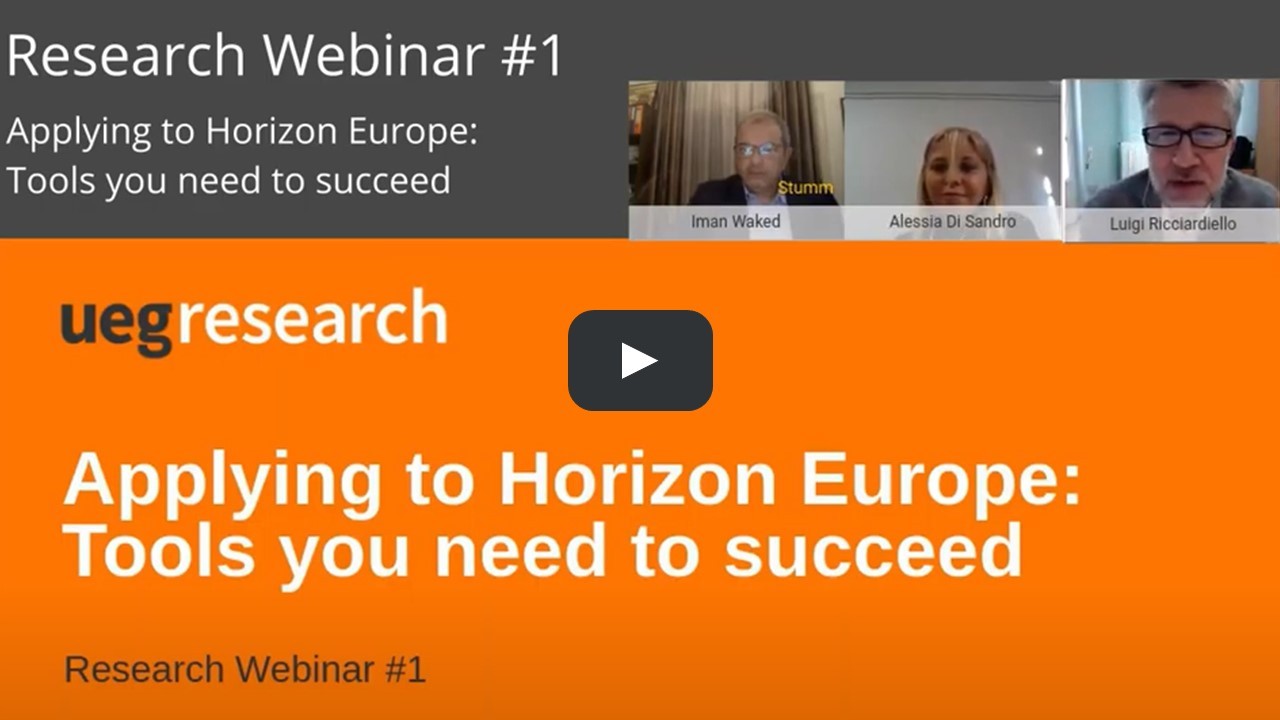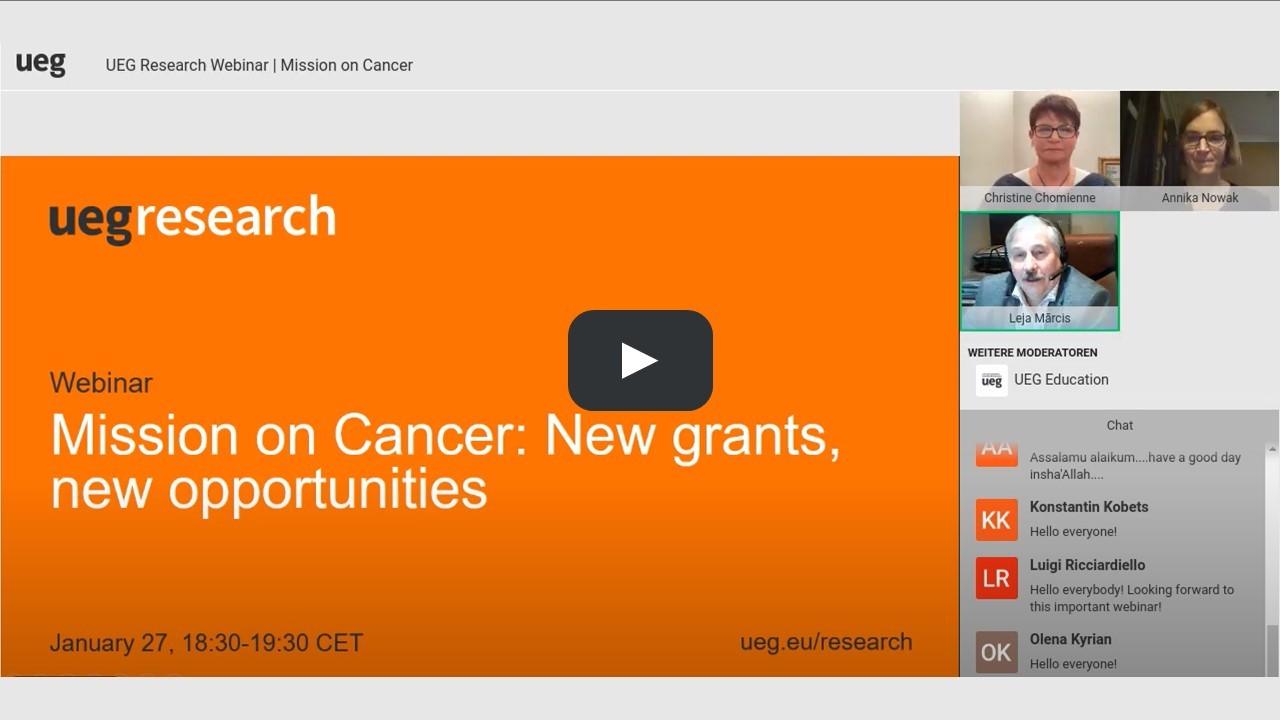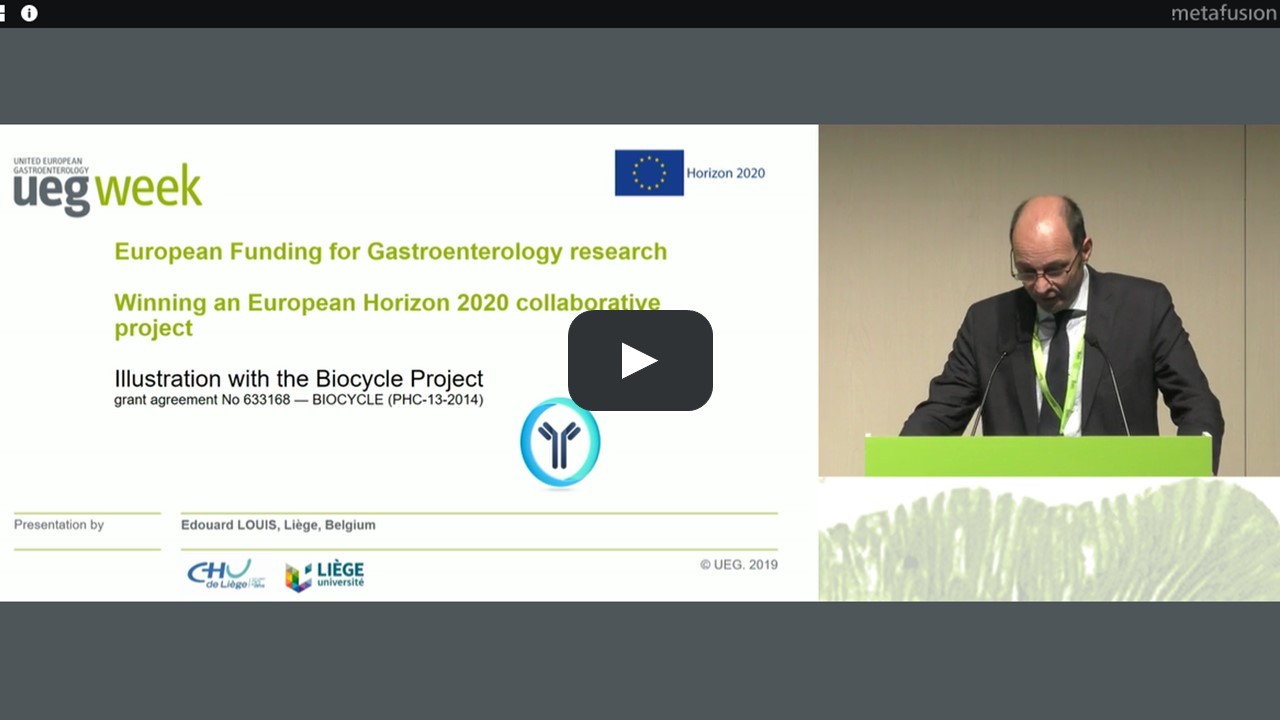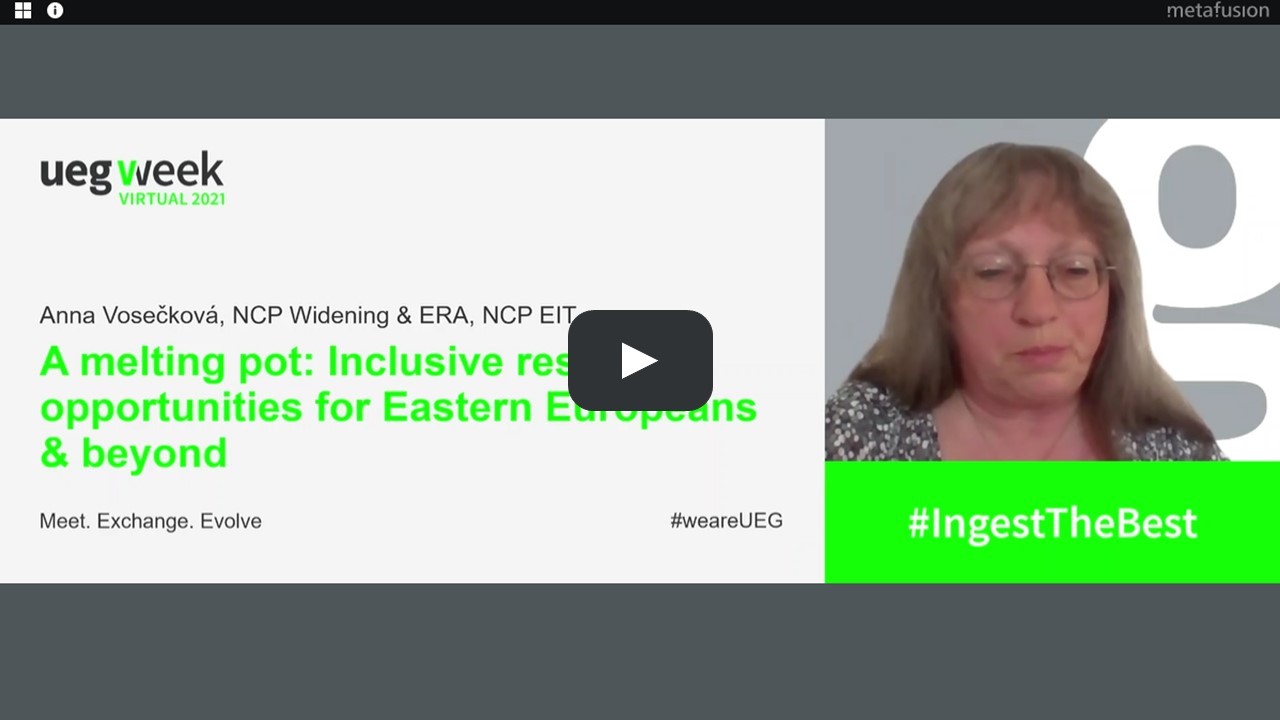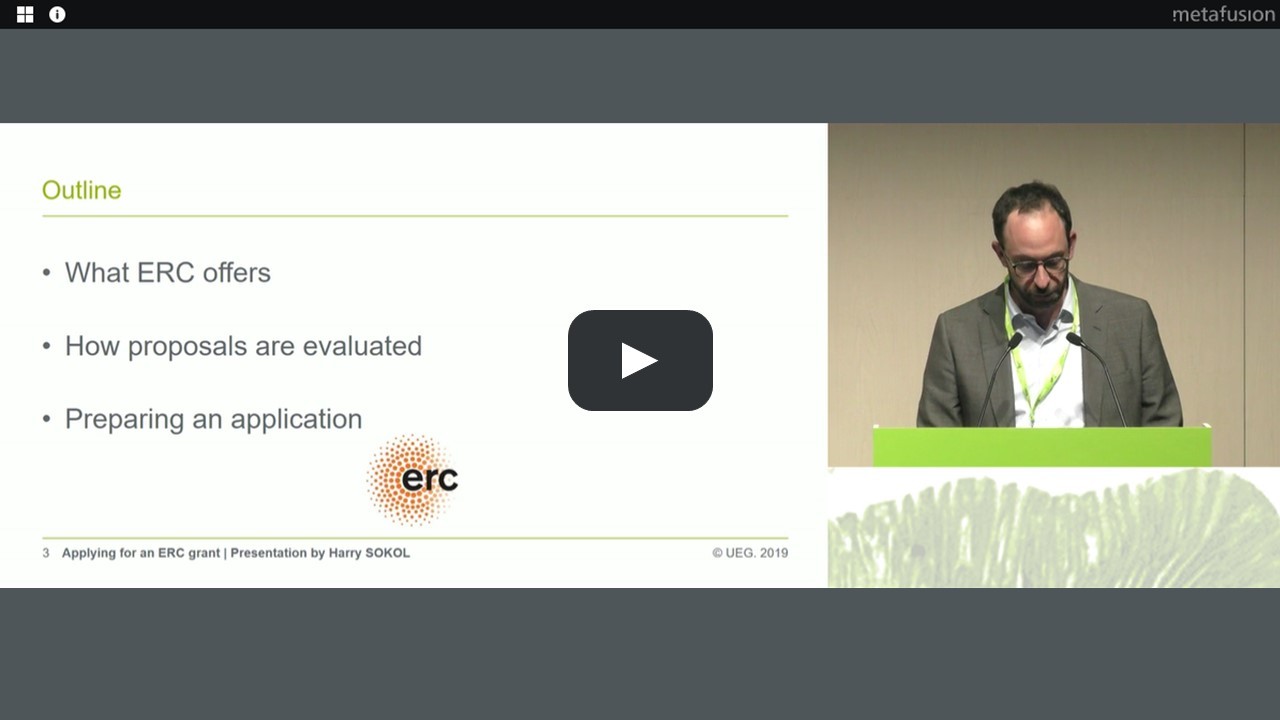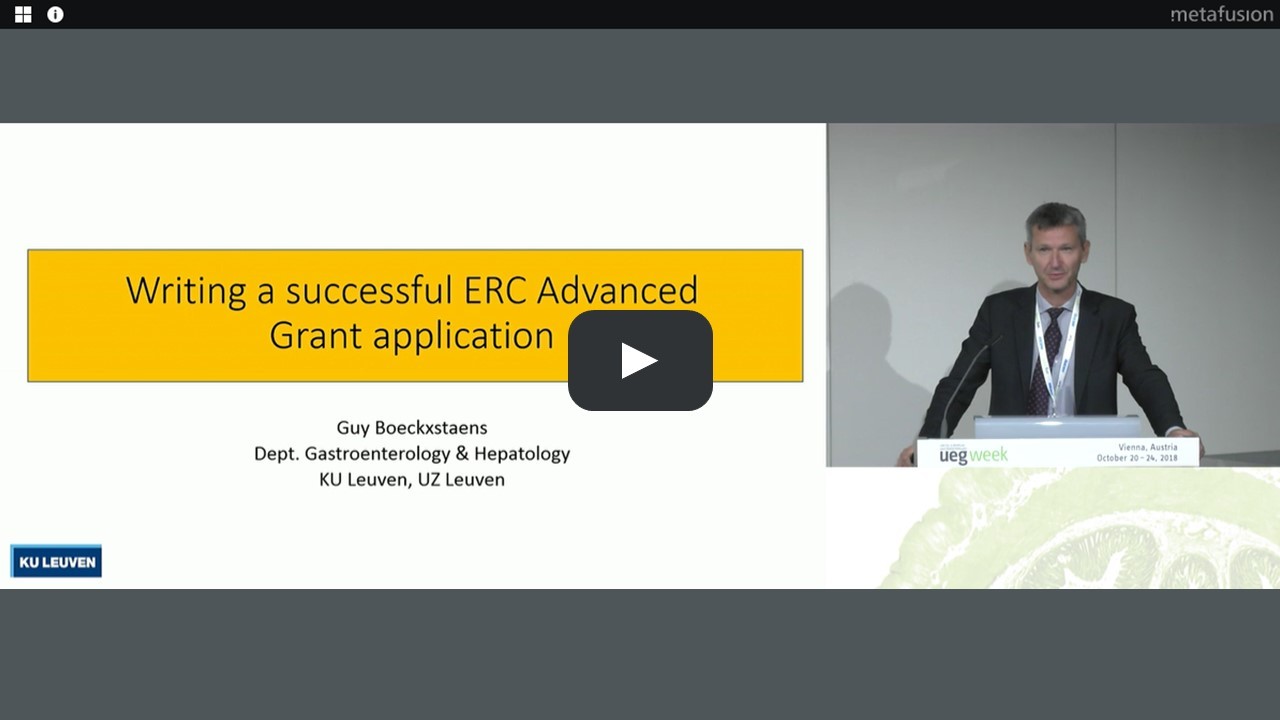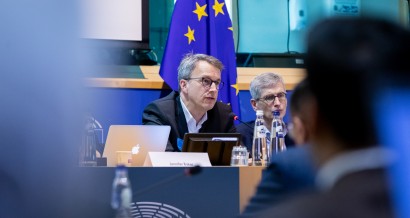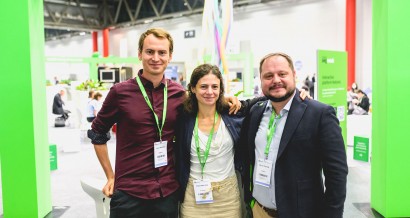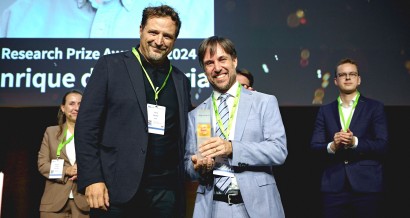At UEG, we're passionate about advancing research in digestive health and want to support your innovative ideas. Our mission is to engage a greater number of digestive health researchers in Horizon Europe-funded projects.
Have you found your relevant topic?
Contact us to discuss your project ideas and proposals. UEG is ready to evaluate your project proposal, join a consortium or help in the search for partners.
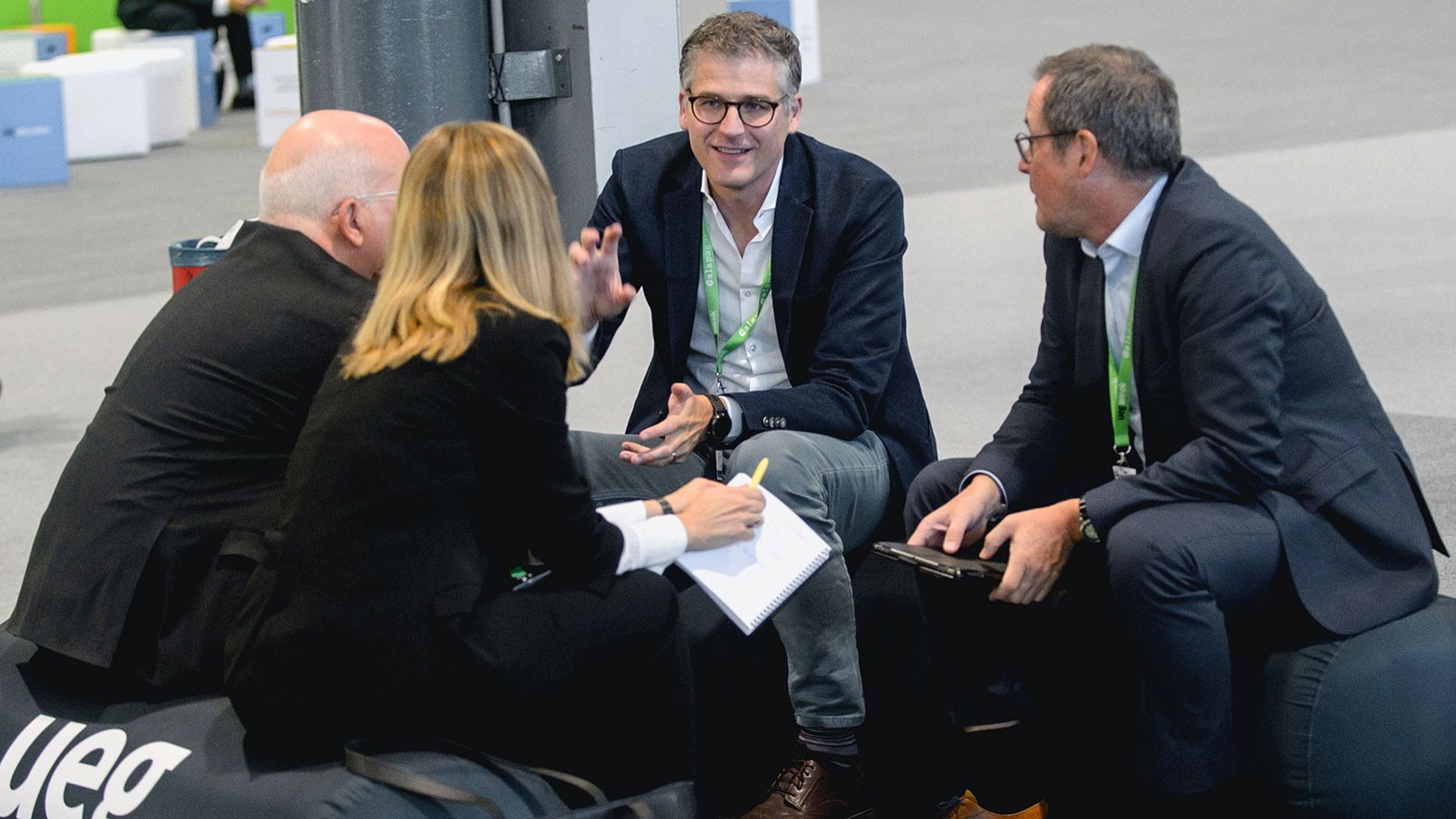
Funding opportunities in Horizon Europe
Horizon Europe is the European Union’s main funding instrument for research and innovation. The goal is to ensure Europe produces world-class science, removes barriers to innovation and makes it easier for the public and private sectors to work together in delivering innovation.
Several calls are currently open in Horizon Europe that could be of interest to the digestive health community. We encourage you to explore the list of funding opportunities, as these calls for proposals present chances to advance research and innovation in digestive health.
Calls under the European Partnership on transforming health and care systems instrument (THCS)
THCS is a “cofund action” under the Horizon Europe Programme, which is designed to support coordinated national and regional research and innovation programmes along with capacity building, networking, dissemination, and other key activities to support health and care systems transformation.
-
THCS cascade funding, multiple cut-off deadline model, with an opening date of November 26, 2024, as published on EU Funding and Tenders portal: Better care closer to home: Enhancing primary and community care HORIZON-HLTH-2022-CARE-10-01 - European partnership on transforming health and care systems
There is a two-step submission and evaluation procedure for joint transnational applications. Pre-proposals are to be submitted by the deadline of January 30, 2025. For more details and the application template, visit the THCS website. For full proposals via electronic submission system no later than June 19, 2025. The minimum project duration is 12 months, and projects must be designed to be achievable during a maximum funding period of 36 months.
Calls under the partnership Fostering a European Research Area for Health Research (ERA4Health)
-
Fostering Pragmatic Comparative-Effectiveness Trials in Non-communicable Diseases (EffecTrial), multiple cut-off deadline model, HORIZON-HLTH-2022-DISEASE-03-01 - European partnership fostering a European Research Area (ERA) for health research
The focus of the multi-country Investigator-Initiated Clinical Studies should primarily address at least one of the following principal diseases/conditions:
- Be a pragmatic comparative effectiveness trial, designed as randomised interventional trial.
- Compare the use of currently approved healthcare interventions either to each other or to the current standard of care.
- They shall consider healthcare interventions which could include but would not be limited to: diagnostic, screening, prevention and treatment interventions. The interventions can be pharmacological as well as non-pharmacological procedures like nutrition and/or lifestyle interventions, surgery, prognosis methods, use of medical devices, eHealth and digital interventions and other health interventions.
- These interventions shall have high public relevance only in the fields of these specific diseases or conditions (that are of equal importance):
- Cardiovascular diseases
- Metabolic disorders
- Nutrition and lifestyle-related diseases
- Non-communicable respiratory diseases
For all details on the scope and the requirements of the call, as well as national/regional specific requirements, refer to the full call text published on ERA4Health website (EffecTrial 2025).
Calls under the Innovative Health Initiative (IHI) on different topics
The draft texts of IHI calls 9 and 10 are now available on the Future opportunities page of the IHI website. Both calls are scheduled for launch in early 2025, but the draft topics were published to give applicants additional time to prepare a strong proposal and join or build a winning consortium.
IHI call 9
IHI call 9 will be a single-stage, applicant-driven call with five topics aligned with the five specific objectives set out in the IHI Strategic Research and Innovation Agenda (SRIA).
- contribute towards a better understanding of the determinants of health and priority disease areas
- integrate fragmented health research and innovation efforts bringing together health industry sectors and other stakeholders, focussing on unmet public health needs, to enable the development of tools, data, platforms, technologies and processes for improved prediction, prevention, interception, diagnosis, treatment and management of diseases, meeting the needs of end-users
- demonstrate the feasibility of people-centred, integrated healthcare solutions
- exploit the full potential of digitalisation and data exchange in healthcare
- enable the development of new and improved evaluation methodologies and models for a comprehensive assessment of the added value of innovative and integrated healthcare solutions.
People with an idea for a project are encouraged to share it through our online brokerage platform and via a pitch at a brokerage event in November (IHI Call Days - Call 9, Onsite in Brussels: November 12 - 13, 2024, Online: November 14, 2024).
IHI call 10
IHI call 10 – a two-stage call with topics on PFAS, the EHDS, and digital labelling, draft indicative information, subject to change!
- Topic 1 Digital label: one source of comprehensive information for medical technology products
- Topic 2 Safeguarding innovation in secondary use of health data in the European Health Data Space (EHDS)
- Topic 3 Per- and Poly-fluoroalkyl substance (PFAS) exposure, emissions, and end of life management in the healthcare sector
Ongoing IHI Call 8
The deadline for submitting a short proposal for IHI call 8 ended in October 10, 2024. The full proposal submission deadline is April 23, 2025. For further details and links to respective calls for proposals, go to IHI call 8.
Pan-European Consortium Start-up Grant
UEG provides start-up grants of up to €10,000 for initiatives focused on forming pan-European project consortiums.
UEG is also interested in participating in EU-funded projects. To project consortia, the UEG can offer comprehensive partnership, aiding in the development and execution of their project dissemination strategies. UEG would be an excellent choice as a dissemination partner for research projects related to digestive health.
Project proposal coordinators have to contact UEG at least 8 weeks before the submission deadline for single-stage application processes or 4 weeks before the deadline for the second-stage phase of the application procedure. UEG commits to responding to your inquiry within a maximum of two weeks.
We accept applications on an ongoing basis until UEG's capacity to participate in projects is reached. There is no set deadline. All applications will be treated confidentially and evaluated by experts from various disciplines within the UEG Research Committee specializing in digestive health.
How to apply:
To consider your application, we kindly request initial information to be sent via email to Henrich Hipca.
Please use the UEG start-up grant application template, including the basic information and details outlined in the template necessary for assessing your application, such as:
- Information on the project management team structure, work package topics, and their leaders.
- A project description, its innovativeness, and the implementation roadmap from idea to impact.
- Activities involving UEG and your expectations regarding UEG's active role as a dissemination partner in your project.
- How your project aligns with UEG's strategic priorities and the priorities of UEG's member societies.
UEG is actively engaged in advancing research within the digestive health field by participating as a key dissemination partner for various project consortia. Our role focuses on developing and executing effective dissemination strategies that communicate critical project results to the digestive health community, particularly targeting clinicians. As an expert in the field, UEG is ideally positioned to ensure that the impact of these projects is maximised by reaching the right audience.
A strong communication and dissemination strategy is essential for submitting a competitive project proposal, and UEG’s involvement can significantly enhance the chances of success. By planning a clear path to impact from the very early stages of your project, you increase its potential for long-term success. Discover more about the research projects UEG is currently supporting and how we are contributing to the future of digestive health.

